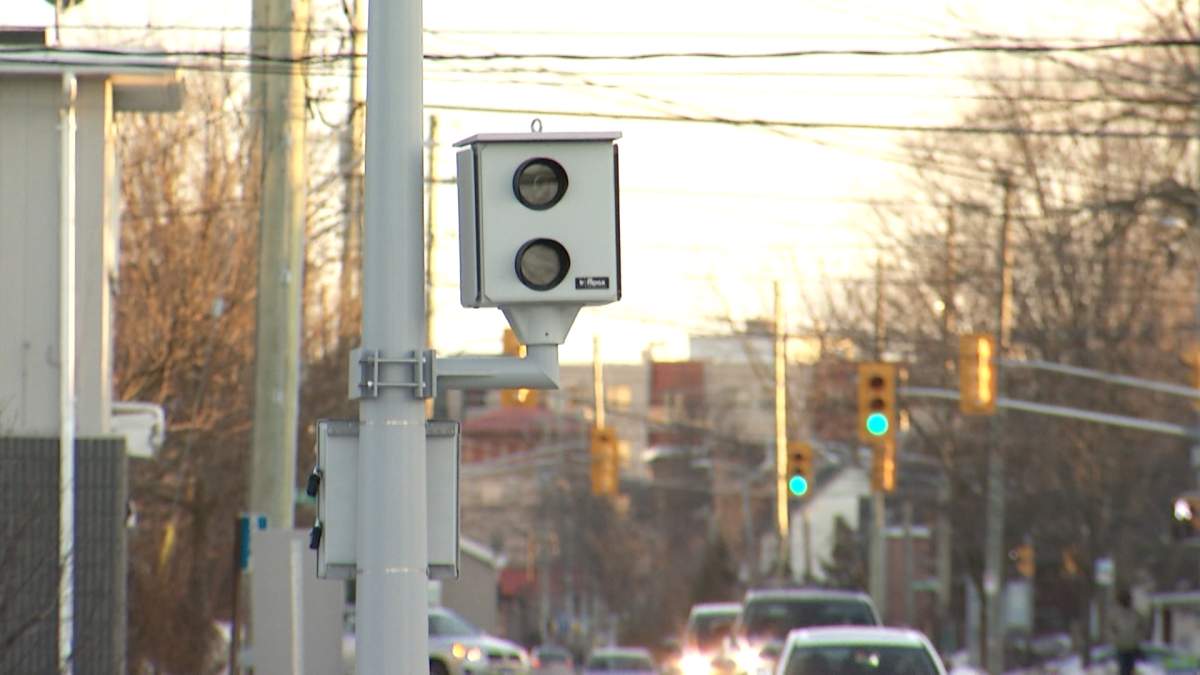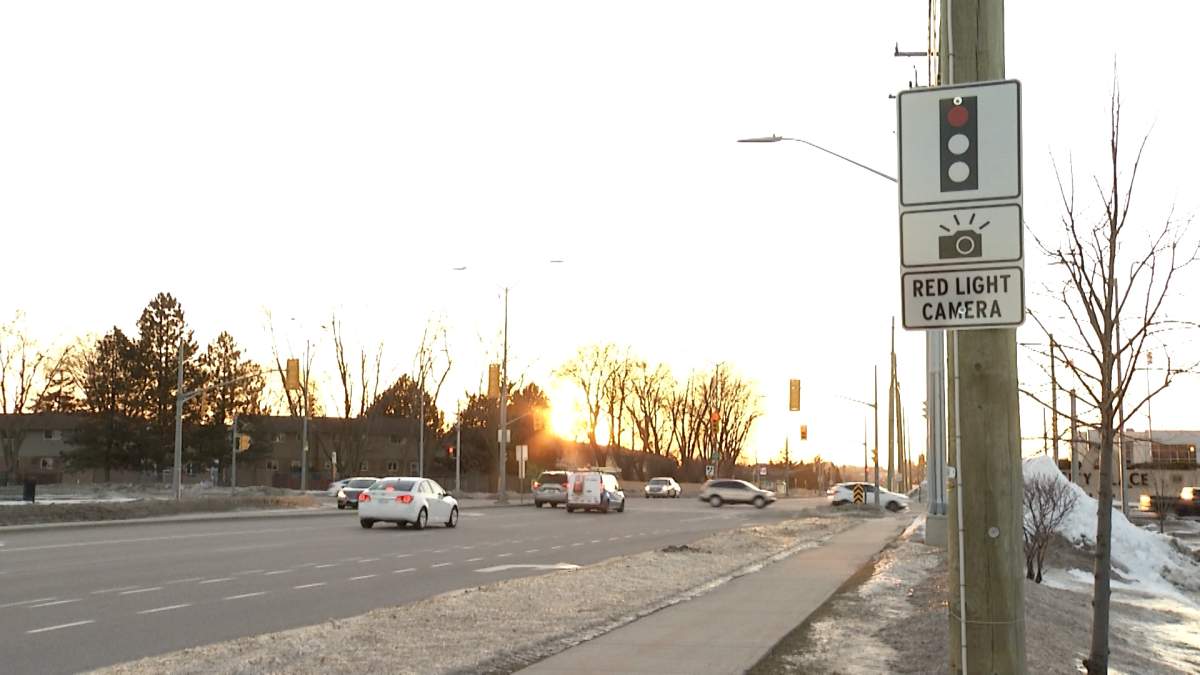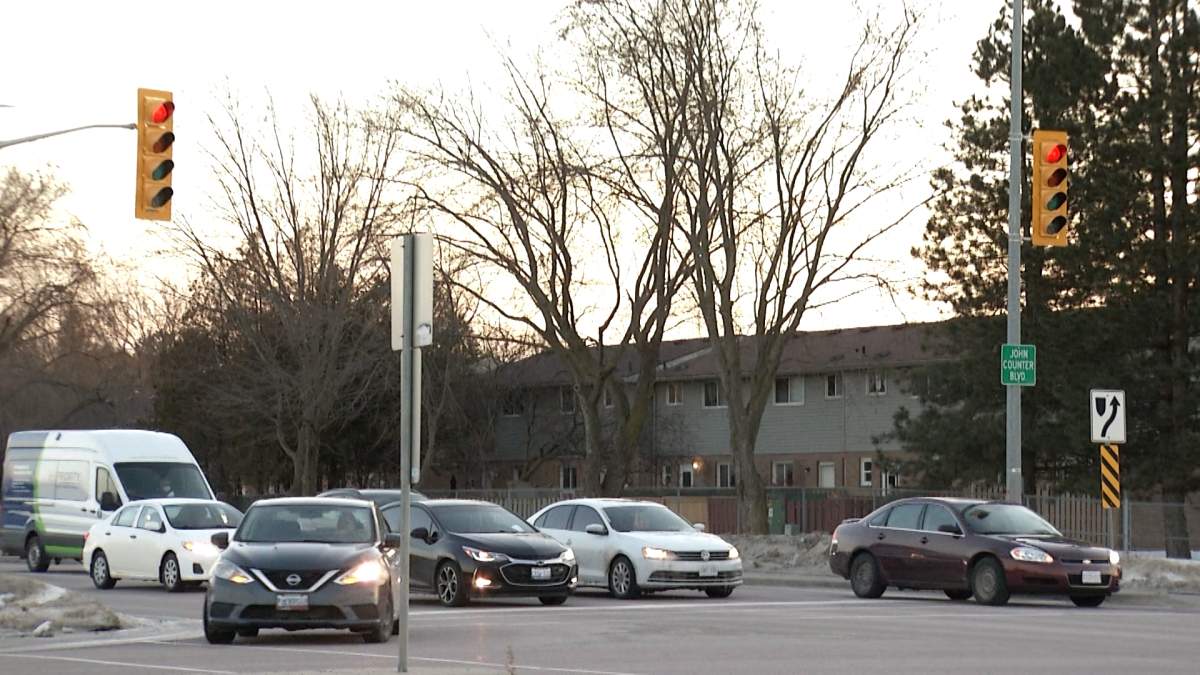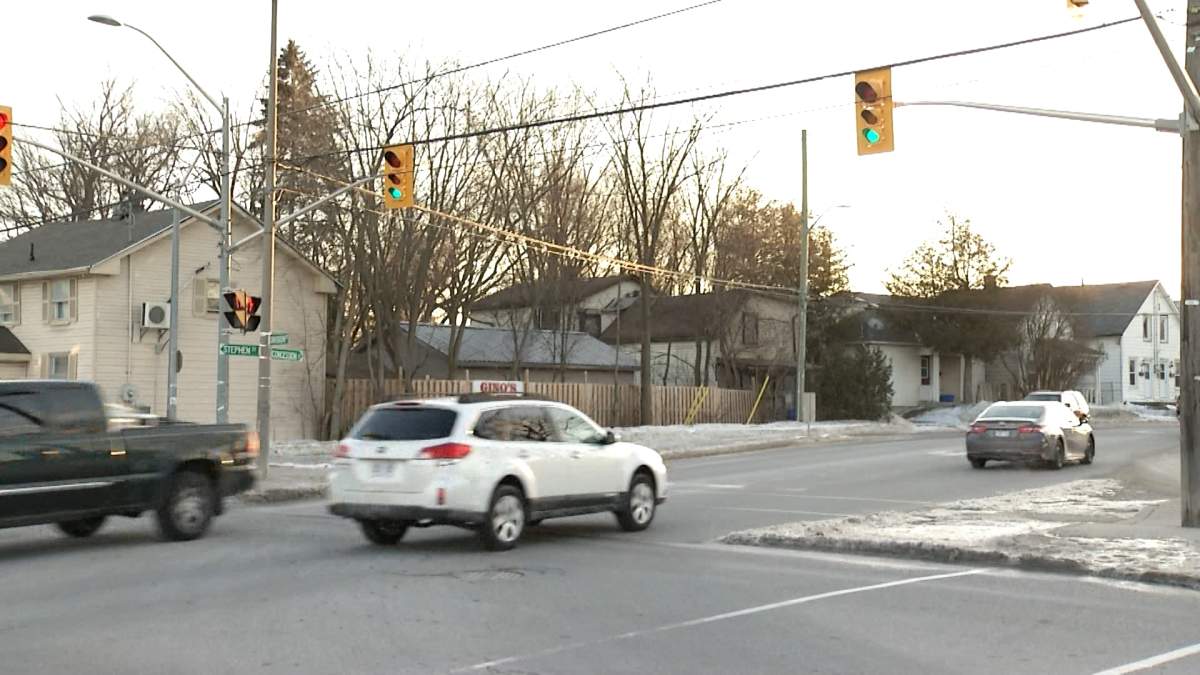Impatient drivers, watch out.

After years of study and political debate, red-light cameras are making their debut on the streets of Kingston this week.
Starting March 1, the automated cameras will begin snapping licence plate pictures of vehicles that breeze through red lights at seven collision-prone intersections in a bid to improve pedestrian safety while reducing collisions and aggressive driving across the city.
“Enhancing public safety with a focus on pedestrian access and enforcement is a council priority and reducing red light running is part of that goal,” says Kingston Mayor Bryan Paterson.
“Red light cameras are a tool to help reduce risk and improve safety on our streets and intersections.”
The cameras are installed at Princess Street and Bayridge Drive, Princess and Centennial Road, Johnson and Barrie streets, John Counter and Sir John A. Macdonald boulevards, Division and Concession streets, County Road 2 and Princess Mary/Craftsman Boulevard and Perth and Unity roads.
Under the program, a camera would only be focused on one approach at each intersection. If the camera records a vehicle crossing the white intersection line on a red light, a picture is taken of the licence plate and the vehicle’s owner is mailed a $325 ticket with no impact on demerit points.

Get daily National news
Police, fire trucks, ambulances and other emergency vehicles responding to calls will also get a ticket if they do not stop at red lights before proceeding through an intersection.
Of the set fine, the city collects $260 while the province gets $60 for a victim surcharge, plus $5 is set aside for court costs.
Improved equipment technology will reduce the installation per camera from $44,690, based on the initial estimate in 2019, to $24,557 for the first three years and $11,932 if the contract is extended from 2025 to 2027.
The cost to install, operate and maintain the seven cameras is estimated at $1.7 million over five years.
Based on the city’s $260 ticket share, officials say it would require approximately 0.6 tickets per camera per day to cover all operating costs of the program.
Staff noted that collisions linked to drivers running red lights are often severe since they typically result in right angle-type collisions, and statistics showed the cameras can reduce the frequency of right-angle collisions by at least 25 per cent.
Kingston police also endorse red light cameras as a way to curb accident and injury rates.
Initially, city council wanted to launch the program at 10 intersections for three years starting in 2022 with an option to renew for a further two years. However, a review found that some of the previously identified intersections are too close together. But more cameras can be added in the future.
Staff say drivers need not worry about getting a ticket under the following conditions:
- If vehicles enter the intersection on a green or amber traffic signal or stop slightly beyond the stop bar but do not continue through the intersection on a red light.
- Left-turning motorists completing their turn when the traffic signal is red as long as the vehicle enters the intersection on a green or amber traffic signal.
- Vehicles turning right on red provided the vehicle comes to a complete stop before the white stop bar prior to turning.
- Vehicles entering an intersection that is under the direct control of a police officer, or if the white stop bar is covered by snow and not clearly visible in the photograph.
Though new to Kingston, red-light cameras have been a fixture in Ontario for two decades and are common in Toronto, Ottawa, Hamilton and other Ontario cities.











Comments
Want to discuss? Please read our Commenting Policy first.